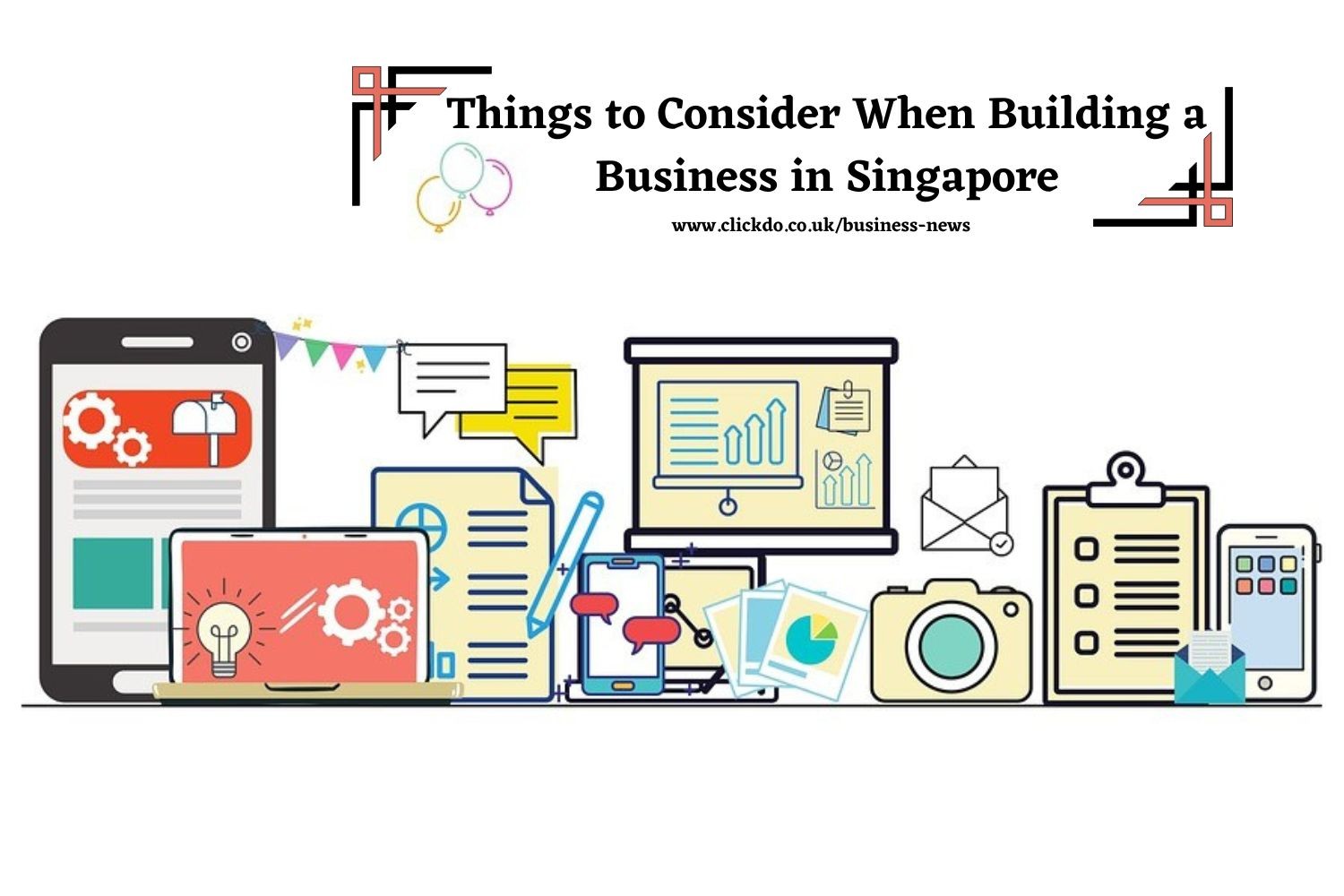
8 Things to Consider When Building a Business in Singapore
Table of Contents
When it comes to starting your own Singapore business, there are a lot of things to think about.
You need to have a clear idea of the Singaporean marketplace, what you’re selling, how you’re going to make money, and who your target market is. But that’s just the beginning.
Let’s explore the eight other important things to consider when building your business toward success.
1. Have an Effective Business Plan and Stick to It

One of the most important things you can do when starting a business is to have a clear, detailed plan of action. This should include your goals and objectives, as well as how you will reach them. Having a good plan in place before launching your business will provide structure and guidance throughout the entirety of your venture.
Additionally, lenders, investors, and potential employees will want to see that you have a strong plan for success and will use it as a measuring stick for your business. Sticking to and updating this plan will help you stay on track, reach milestones, and eventually achieve success.
However, do not be afraid to make adjustments as needed. As your business grows, you may need to adapt and update your strategy.
2. Branding, Domain, and Logo

Your brand is the face of your business. It’s what helps people recognize who you are and what you offer. This means that you have to develop a cohesive and captivating logo, buy a domain name, and tagline, and think about website design and overall branding message that resonates with your target market. In Singapore, having a well-defined brand identity can create trust and loyalty with customers, and will make them more likely to purchase your products or services.
On the other hand, you need to think about what domain names will be the most effective for your business. Pick carefully – you only get one chance to make a first impression with potential customers!
3. Research Your Target Market

Before you start a business, it’s important to take the time to research your target market. Who are the people that will be most interested in your product or service? What demographic are they? What is their income level?
Understanding your target market will help you develop a PR and marketing strategy that speaks directly to them. This can be done through market research, surveys, or interviews with potential customers.
For instance, if you are selling a product to seniors, your marketing should focus on how this product can make their life easier or more enjoyable. Or if you are selling a service to millennials, your marketing should focus on how this service can make their lives more efficient or save them time.
Knowing your target market and creating an appropriate message will also help you create an effective marketing strategy.
4. Research Your Competitors and Find a Niche

In addition to researching your target market, you must research your competitors as well. Understanding what they are doing, what their pricing structure looks like, and who their target market is can help you create strategies that will set your business apart from others in the industry.
You should also consider finding a niche within your industry. This could be something as small as specializing in a certain type of product or service, or it could be big – such as offering a novel solution to an existing problem. Focusing on a niche can help you stand out and attract customers who are looking specifically for the products or services that your business offers.
5. Secure Funding

Securing funding is an essential part of starting a business as you need to make sure that you have enough capital to cover expenses, including payroll, inventory, marketing, and more. Depending on the size and scale of your business, you can either use personal funds or seek out investors who are willing to provide capital for your venture.
You may also want to look into grants, small business loans, crowdfunding campaigns, and other opportunities that are available to entrepreneurs. It’s important to do your research before making any decisions and to find the best option for your business. For instance, if you are a startup, grants and crowdfunding campaigns may be better options than taking out a loan.
6. Choose Your Business Structure

When starting a business, you need to decide on what type of legal structure you want to use. This decision will have an impact on taxes, the amount of paperwork required, and the personal liability that you are responsible for. The most common forms of business structures in Singapore are sole proprietorships, partnerships, corporations, and limited liability companies.
Each type of structure has its benefits and drawbacks, so you must do your research to determine which one is best for your business. Talking to a lawyer or an accountant can also help you make the right decision based on your specific needs and goals.
7. Develop an Online Presence

In today’s digital world, having a strong online presence is essential for any business. You need to create a website and social media accounts to reach potential customers and build brand recognition. Additionally, you must be active on these platforms to engage with your customers and keep them updated on your business.
You can try to do this on your own, or you can hire a marketing agency to help you develop an effective online presence. The key is to make sure that you are consistently engaging with customers and providing them with valuable information about your business.
8. Marketing Your Way Up

Finally, developing a marketing strategy should include both digital and traditional forms of advertising such as print, radio, and television. You can also use social media platforms to reach new customers or to create relationships with existing ones.
Developing a strategy that includes both traditional and digital forms of advertising will ensure that your business is reaching the right people with the right message. Implementing a multi-channel approach will help you create a cohesive brand identity, as well as build credibility and trust with customers.
Starting a business in Singapore is no easy task, but if you take the time to plan and execute each step correctly, you’ll be well on your way to success. These are just some of the things that you need to consider when starting a business venture, so make sure to do your research and consult with professionals who can help guide you through the process.
By taking these steps, you’ll give yourself the best chance for success in the competitive world of Singaporean business.

